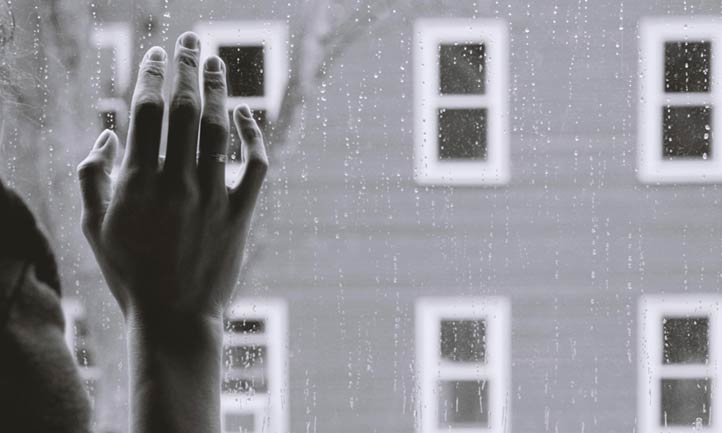This Pandemic of Grief
Author: Alan Wolfelt
The coronavirus is not only causing a viral pandemic—it is giving rise to a pandemic of grief. As I write this, in mid-March, we as a global community are suffering so many losses that I hardly know where to begin.
Death and grief go hand-in-hand, of course. Thousands of people have already died of COVID-19 worldwide. Many more are dying now. These are terrible losses for their loved ones, who will need our support in the months to come.
Yet what strikes me is that this virus is threatening every person on Earth with myriad losses of every kind. Name something you care about or that gives your life meaning. In all likelihood, it’s now in jeopardy.
 Kristina Tripkovic on Unsplash
Kristina Tripkovic on Unsplash
Social distancing is forcing us apart from friends and family. Personal events have been called off, so we can’t gather for meaningful celebrations and rituals. Public activities that brought us together have also been cancelled. Workplaces are shuttering. Restaurants, museums, and theaters are closing. Sporting events have been shut down. Town squares stand empty.
While thanks to technology we can stay in constant contact with one another remotely—something impossible during past prolonged international crises, such as the 1918 flu pandemic—we are learning the limitations of digital love and care.
What is grief?
As human beings, whenever our attachments are threatened, harmed, or severed, we grieve. Grief is everything we think and feel inside of us when this happens. We experience shock and disbelief. We worry, which is a form of fear. We become sad and possibly lonely. We get angry. We feel guilty or regretful. The sum total of all our feelings is our grief.
This virus is fast. As it sweeps across continents and we collectively work to “flatten the curve,” new rules and limitations pop up every day. As the noose tightens, our grief will change. And as with the virus itself, it will likely get worse before it gets better.
How to help yourself and others: emotionally, socially, and spiritually
There are a couple of important things to understand about our pandemic grief.
First, it is normal. It is simply a part of our love and attachment.
And second, grief responds to attention and expression.
We feel better when we mourn. Mourning is paying attention to our grief and expressing it outside ourselves.
We have all heard a lot about how to take care of ourselves physically with this virus, but I have seen little about emotional, social, and spiritual health. During this time of great grief, mourning is key to these pillars of self-care.
When we are feeling the emotional pain of our coronavirus grief, we can tune into it and express it. We can talk to others about it, in our household, on the phone, or online. We can write about it in a journal. We can listen to music or watch movies that help us access and share our feelings. Mourning gives us the emotional release and sustenance we need to survive.
Socially, we can’t congregate. But we can continue to reach out to people we care about. Video calls are probably the best substitute for face-to-face conversations. Voice calls come second. After that, emails, texting, and social media work, too. And don’t forget the power of the handwritten letter! The point is to stay connected as much as possible AND be about whatever we’re feeling at the moment. Our candor will encourage others to be honest as well, opening the door to mutual support and kindness.
And when it comes to spiritual health, now is an especially resonant time to work on caring for our souls. I recommend spending at least 15 minutes a day on whatever you find spiritual. For some, it might be meditation or prayer; for others, reading spiritual texts, attending religious services online, doing yoga, or spending time in nature.
Here in the American West, it feels surreal. We know the route we’re heading down, but we don’t know how bad it will get or how our local communities—or we personally—will be harmed. Because of this uncertainty, our grief is in part anticipatory. Even as we are grieving very real restrictions, we are also anticipating the unknown griefs to come. They, too, are part of our love.
I hope we will emerge from this viral and grief pandemic a more conscious, cohesive, and caring world community. May it shape and transform us into better versions of ourselves.
About the author: Alan D. Wolfelt, Ph.D., is a respected author and educator on companioning others and healing in grief. He is the director of the Center for Loss and Life Transition, in Fort Collins, Colorado (centerforloss.com) and is on the TAPS Advisory Board.
